Dos-Si-Dos Cannabis Strain Week-By-Week Guide
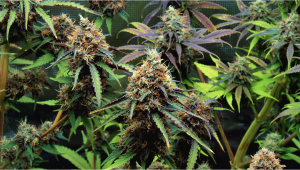
- 1. History
- 2. Specifications
- 3. Week-by-week guide
- 3. a. Germination - week 0
- 3. b. Vegetative stage - week 1
- 3. c. Vegetative stage - week 2
- 3. d. Vegetative stage - week 3
- 3. e. Pre-flowering stage - week 4
- 3. f. Flowering stage - week 5 and 6
- 3. g. Flowering stage - week 7 and 8
- 3. h. Flowering stage - week 9 and 10
- 3. i. Harvesting - week 11
- 4. Post-harvest processes
- 4. a. Properly trimming weed
- 4. b. The drying process
- 4. c. Curing cannabis
- 5. Terpene profile
- 6. Type of effect
- 7. In conclusion
1. History
This beautiful strain released by Barney’s Farm back in 2019 is amongst the best representations of modern hybrids. Resulting from crossing Gelato 33 to OG Kush Breath and Face Off OG, Dos Si Dos cannabis seeds offer an insane trichome production and beautiful colors, with the main characteristic being the pungent but fruity terpene profile that everyone looks after. With 60% Indica genetics, this Indica-dominant strain offers the best of both worlds, an energizing high with an intense body high.
2. Specifications
Thanks to the hand-picked genetics, Dos Si Dos is a fast-growing Indica-dominant hybrid that offers growers of all levels huge yields in as little as 8 weeks of flowering. This strain is became widely known thanks to the delicious smell and flavor it offers, perfect for extractors and hash makers.
Dos Si Dos grows super fast and it’s fairly easy to grow but make sure to avoid stress if you want to really see it thriving. With as little as 4 weeks of veg you’ll be able to get up to 700gr/m2 of mouth-watering flowers with up to 28% THC, so if you’re looking for top-shelf weed, Dos Si Dos is the way to go!
3. Week-By-Week Guide
It’s vital to keep in mind that a strain can display somewhat diverse traits in different growing conditions so utilize this as a guide, not a rule. In the table below you’ll be able to see the growing conditions this plant was grown under, allowing you to have an idea of what to expect.
| Grow Conditions Specifications | |||
|---|---|---|---|
| Light Fixture: | HID | Nutrients: | Super Soil |
| Grow Space: | Indoor | PH level: | 7 |
| Temperature: | 23 - 27°C | Flowering: | 8 weeks |
| Humidity: | 55 - 70% | Substrate: | Soil |
So remember, you don’t need to follow this guide but use it as a way to learn from other growers’ mistakes and make the most out of your garden once the time comes. Having said that, let’s start this weekly guide!
Germination - Week 0
This grow cycle started by germinating 4 Dos Si Dos seeds in jiffy peat pellets. You can germinate seeds any way you want because the important thing in the germination process is to provide the right conditions for the seeds to open up, not the method itself so you can basically do it however you want as long as you germinate the seeds successfully.
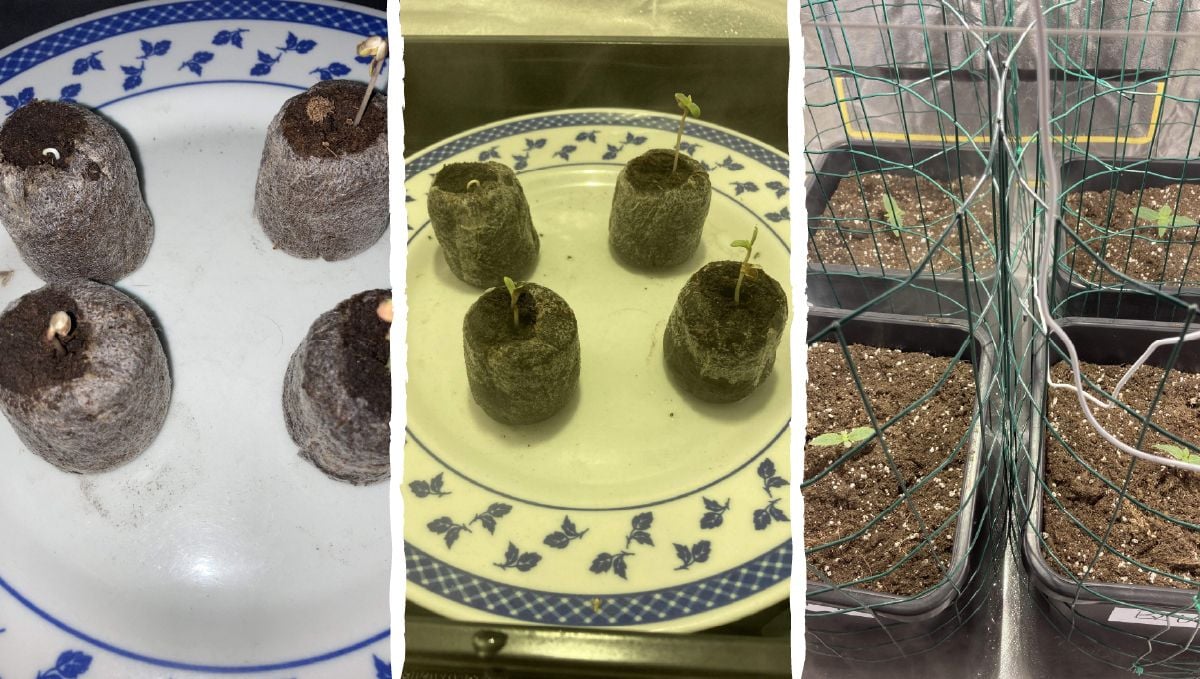
If you’re a beginner and are not familiar with the different germination processes and what to choose, just let the seeds soak in a glass of water for 12-48 hours and once you see the tip of the taproot, transfer them to a damp paper towel.
Once the baby plant comes out of the soil you can go ahead and transplant it. In this case, the seedlings were planted in the final container. Planting in the final container minimizes stress but other factors can end up stressing your plant too, so always make sure the temperature is around 23°C and the humidity levels around 70-75% to avoid any possible issues.
Vegetative Stage - Week 1
Before starting feeding a nutrient solution you should wait for the roots to establish. Now, you can add mycorrhizae or root boosters but wait at least for the true leaves before feeding your plants.
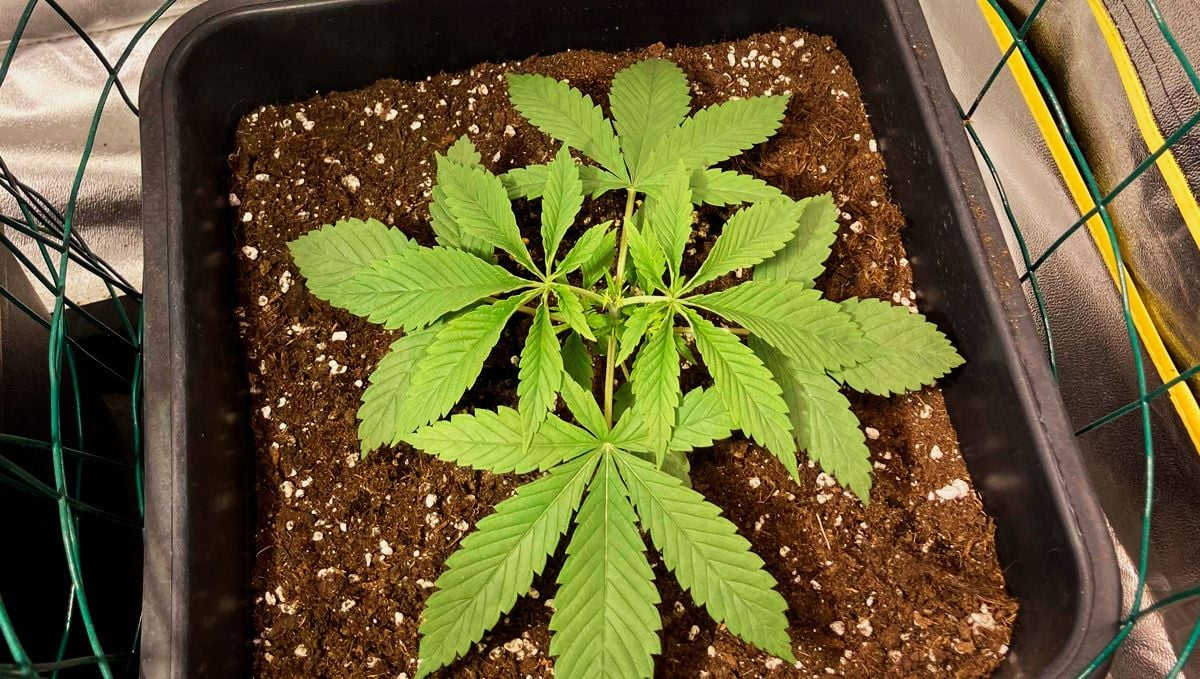
In the photo above you can see this Dos Si Dos developed the true leaves quite fast so the grower quickly place a tomato cage to ensure all plants have enough space to grow. Remember that if you’re growing in pre-fertilized substrate you should not feed your plants unless advised. Inert mediums, on the other hand, require the use of nutrients from the beginning of the grow cycle.
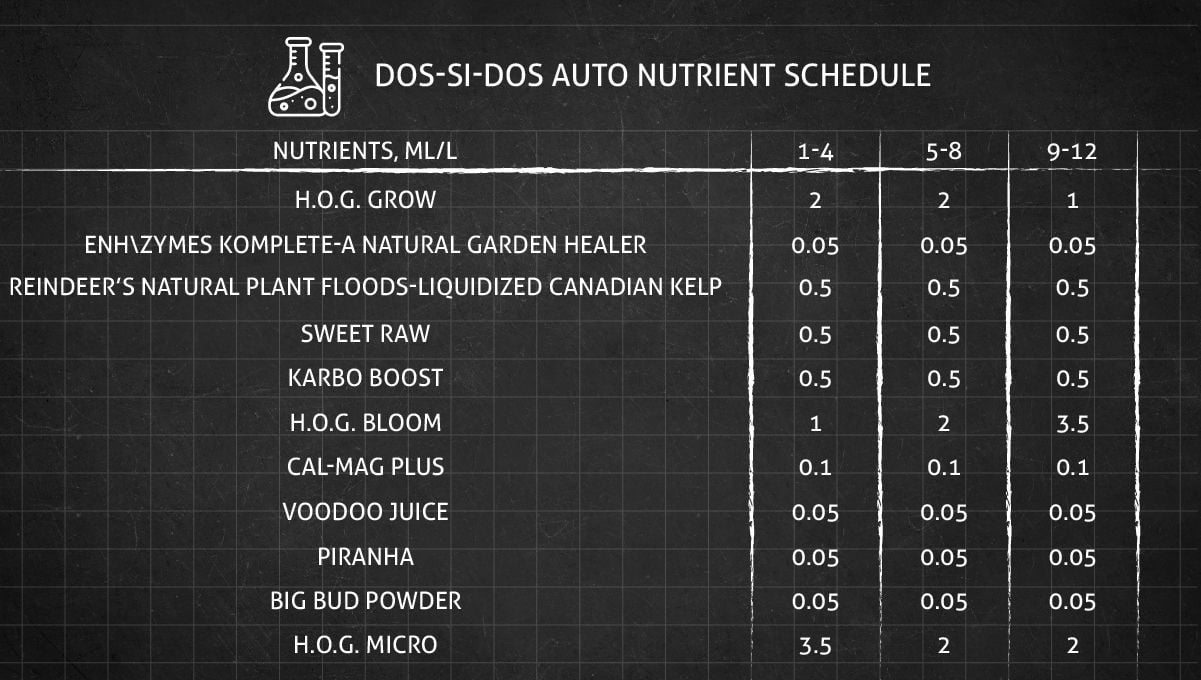
Vegetative Stage - Week 2
As you can see, on week 2 plant growth exploded, but luckily the tomato cages are helping with that. If you grow in coco or soilless hydro it’s super important to check the pH of the nutrient solution when feeding but in this case, the plants are growing in soil which helps buffer the pH, so checking and adjusting pH levels are not as important as in other setups.

Thanks to the excellent genetics Dos Si Dos grows extremely fast, by week 2 the flowering sites are starting to turn light green, which means the plants will be soon ready to flower. Because of the fast growth, the grower topped the plants in an attempt to slow down growth and allow more light to reach the flowering sites.
Vegetative Stage - Week 3
By week 3 the plants are looking gorgeous and have grown quite a bit, as you can see in the photo below, all the flowering sites are turning yellowish and the number of main colas has doubled.
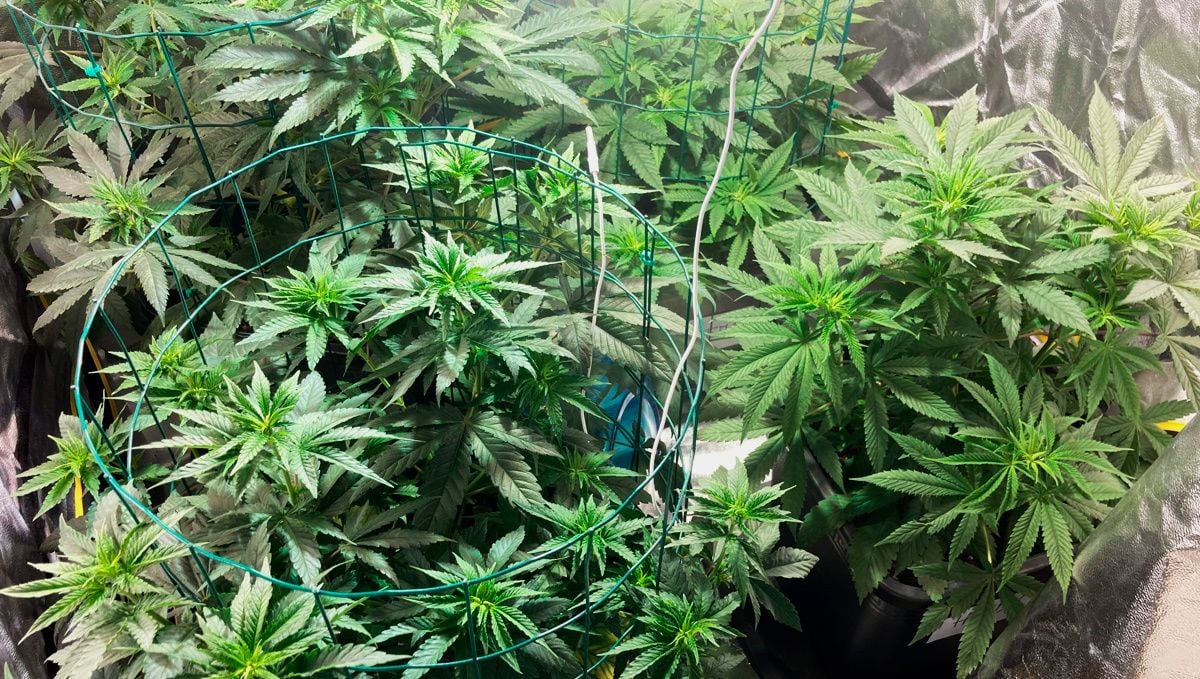
Despite topping, the plant continues to grow exponentially so the grower decided to train the branches with the tomato cage. This way all the branches are nicely spread out and instead of getting one huge main cola, you’ll get several medium-sized flowers.
Pre-Flowering Stage - Week 4
After flipping to a flowering light cycle (aka 12/12), a lot of white hairs started to appear super fast, which already gives an idea of what to expect by harvest time. As you can see, the grower change from a white light (blue spectrum) to a yellow light (red spectrum) which encourages better bud development.

During the pre-flowering stage, cannabis plants go through the flowering stretch in which plants can double in size. Luckily, the tomato cages helped the grower manage that. If it wasn’t for the tomato cages then the whole garden would definitely get out of control. Keep in mind that it’s always a good idea to plan ahead to avoid any possible issues further into the flowering stage.
Flowering Stage - Week 5 and 6
Dos Si Dos growth is impressive, what was a couple of white hairs is now some beautiful buds taking form and by the end of week 6 the buds are starting to take form. You can also see the insane trichome production that’s covering the leaves from top to bottom! In some cases, it’s fairly normal for leaves to start yellowing so as long as it’s the lower leaves yellowing and not the new leaves, don’t worry.
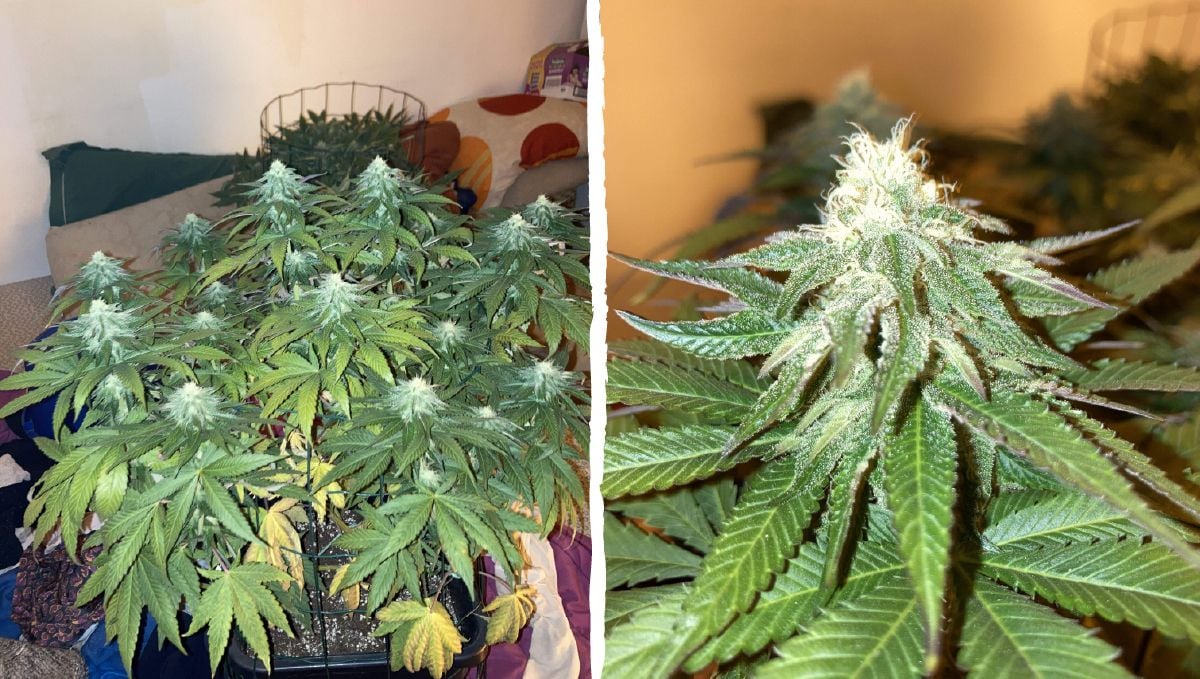
Remember that the flowering stage is the most crucial plant growth stage for cannabis consumers because it can affect flower quality so once your plants are in full-flower mode, remember to keep the temperature around 20 °C and the humidity levels around 40-50%.
Flowering Stage - Week 7 and 8
By week 7 and 8 all plant growth has stopped, except for bud development. This means that your cannabis plants will not grow any more branches because the plant is focusing all the energy on the flowers so all you need to do is keep your plant well-fed, lookout for bugs and just let your plant do its thing.
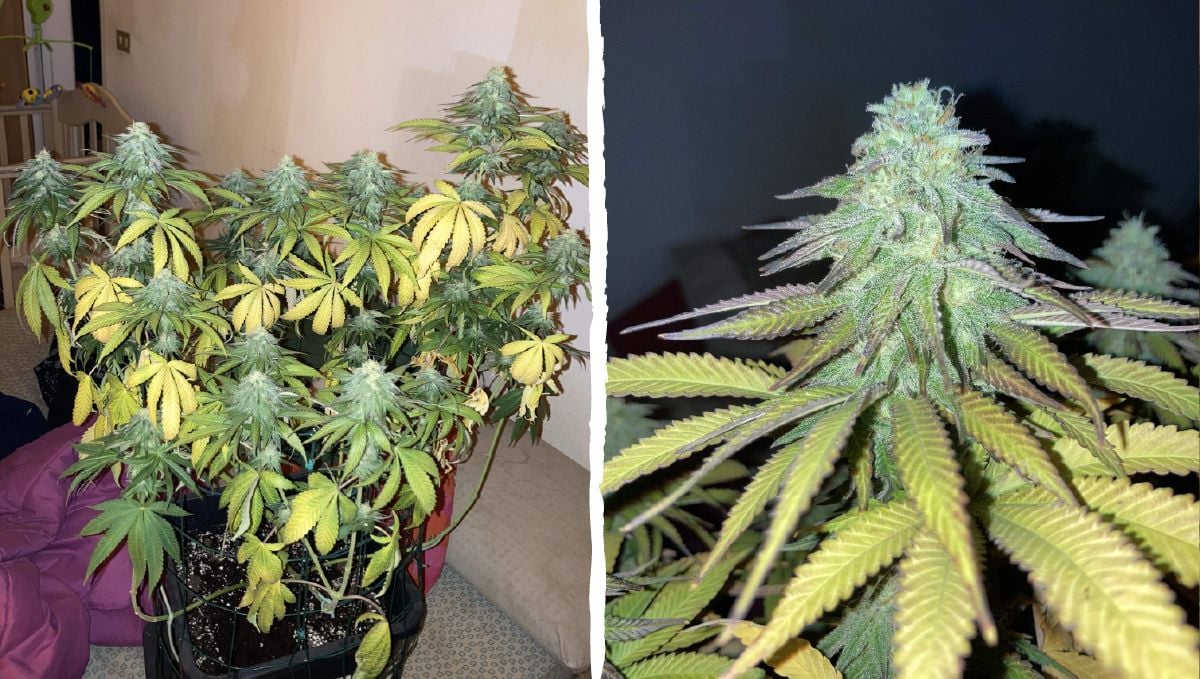
Now that the buds are fairly formed, remember to keep good airflow between them because mold is your worst enemy at this point. Mold could make your whole crop worthless so keep the humidity levels on point and be on the lookout for bugs!
Flowering Stage - Week 9 and 10
As you can see, by week 9 some of the leaves have slowly faded into a nice purple color and the buds are completely covered in trichomes and the white hairs have wilted and turned orange, this is a sign that your plants will soon be in the harvest window but they’re not 100% ready yet, so be patient.
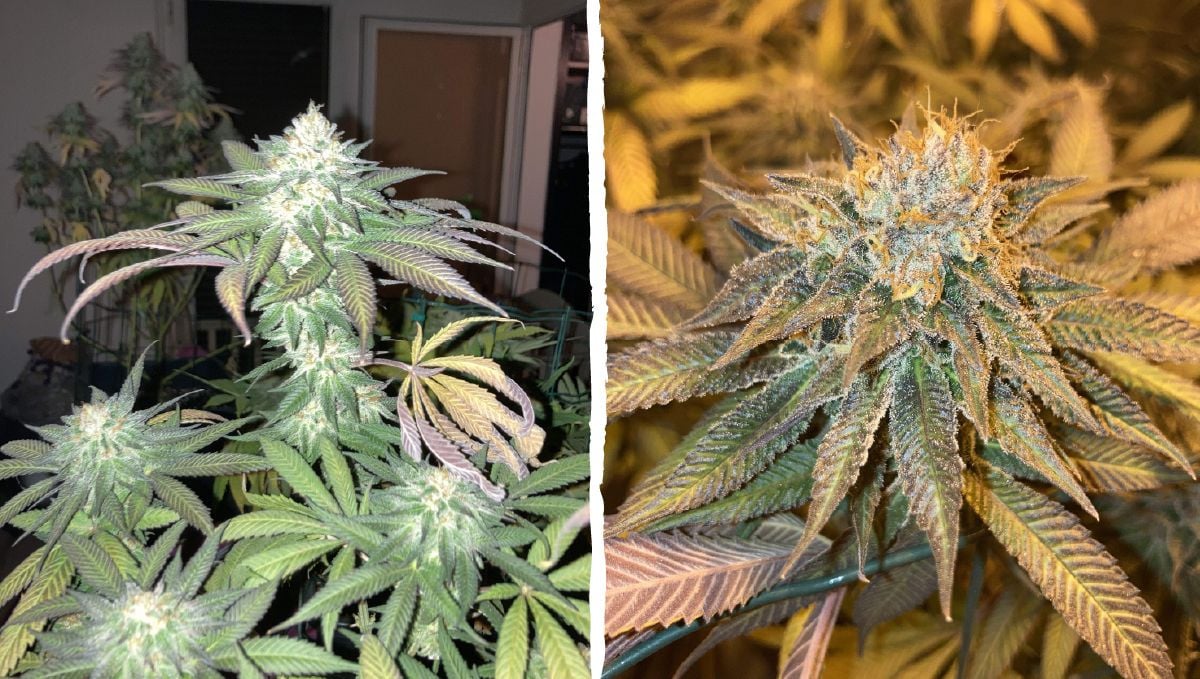
By week 10 the buds should be almost ready, so you can go ahead and flush. Flushing will help all the flavors stand out and will ensure the buds aren’t too harsh on the throat. So make sure you flush, especially if using synthetic nutrients.
Harvesting - Week 11
Week 11 is the last week for this delicious Dos Si Dos. If you haven’t started flushing, now would be the time to do it. Just remember that flushing is optional. If you’re growing with 100% organic nutrients then it’s most likely not needed but it’s really up to you.
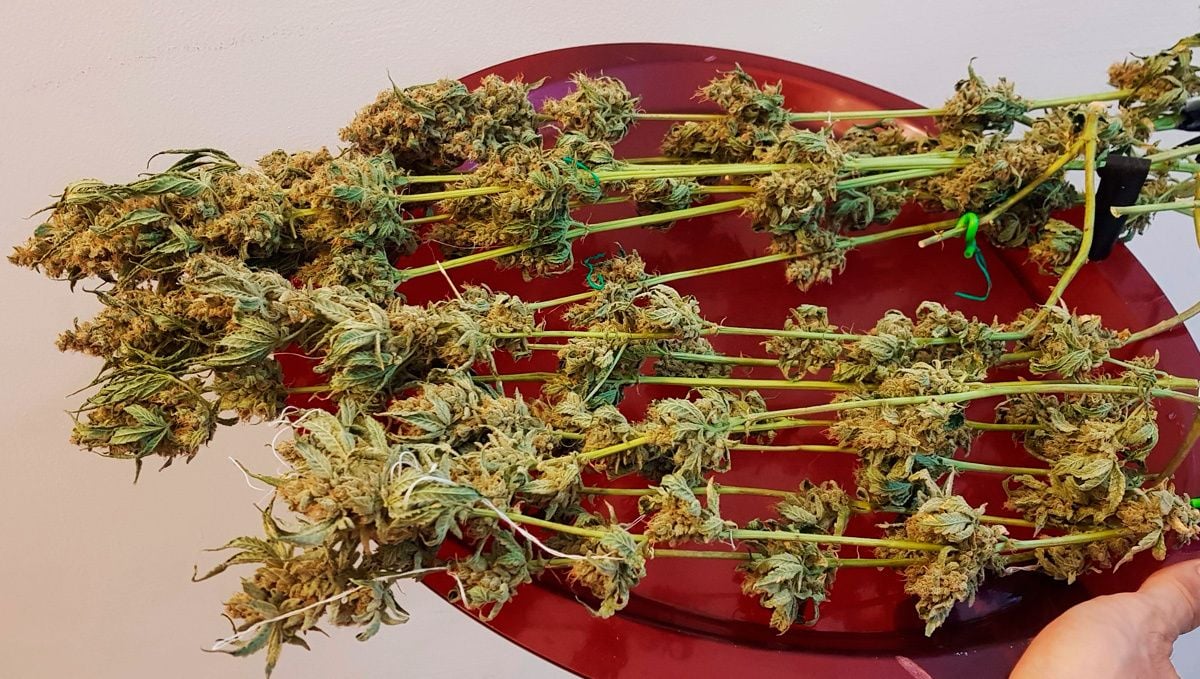
Before harvesting, make sure to check the state of the trichomes because this is the standard practice of when to harvest. If you want a more corporal effect, you should harvest when the majority of the trichomes are amber but if you’re looking for a stronger psychoactive effect, it’s recommended you harvest when the majority of the trichomes are cloudy.
4. Post-Harvest Processes
Nice! You've made it all the way from seed to harvest, and you have finally cut those girls down. What a feeling, right? Finally, time to get down and dirty with those buds! Wait a second there. Unfortunately, really only half the work is done. If you want to get the absolute best out of all that hard work, you are going to have to see exactly how patient you really are. Before the buds reach their true peak, they have to first go through the drying process. And even once they are fully dried, there's the curing to be done. But we are getting ahead of ourselves! First up, let's talk about trimming.
Properly Trimming Weed
There is one major decision to be made here - whether to wet or dry trim.
- Wet trimming is when you remove as much of the excess leaf material as possible before drying. This is done to help speed up the drying process and is best for when you are in an area with high humidity that you are struggling to control. Wet trimming reduces the chances of any mold issues during the drying process.
- Dry trimming involves leaving the plant either totally whole or cutting it down to the branches for the drying process. This will help preserve the terpene profile and is best when humidity can be easily controlled.
Keep in mind that you want the flowers to dry slowly, and by controlling how much plant material dries alongside the buds, we can keep that drying time within the parameters that will ensure the best possible outcome.
The Drying Process
The drying process is a really important step in ensuring the best final product, and the last thing you want to do is rush. For perfect results, you want to slowly dry the buds over a seven to twelve-day period, but you also have to be very careful that mold doesn't take hold during this time. The faster we dry our buds, the more terpenes will break down, leading to an inferior-tasting and smelling product. To be sure of the best outcome, you should be able to regulate the environment. A temperature range of 55-65 Fahrenheit and a humidity setting of 45-55 percent RH is the best way to ensure cannabis buds dry without any problems.
Curing Cannabis
Once your buds are all dried out, it's time for the curing to begin. A question we get thrown our way all the time is "Can't I just smoke the weed now?" - and the answer is, yes for sure. But, the difference between dried buds and cured buds is pretty substantial. Think of the curing process like you would with aging fine wine or whiskey (thank god it doesn't take anywhere near as long) - you want the cannabis to reach its full maturation process, and for that, you are going to need some time and patience.
Curing cannabis involves storing cannabis in airtight jars for a period of two to four weeks - or possibly even longer. Some cultivators cure for a minimum of two months, while others push that right out to three-month plus. It really comes down to the strain, and how pedantic you are. During this time, cannabis will dry out to just the right level, and the terpenes will really start to be more pronounced and reach peak maturation. During the first week, you want to burp the jars a minimum of twice a day, but after the first week has passed you can drop that down to once every two or three days. Mason jars work perfectly for this - and keep in mind not to fill them past the 75% mark so the buds have a bit of room to breathe.
5. Terpene Profile
Dos Si Dos offers an unusual yet delicious terpene profile composed of humulene, limonene, and myrcene as the main terpenes and linalool, pinene and caryophyllene as the secondary ones.
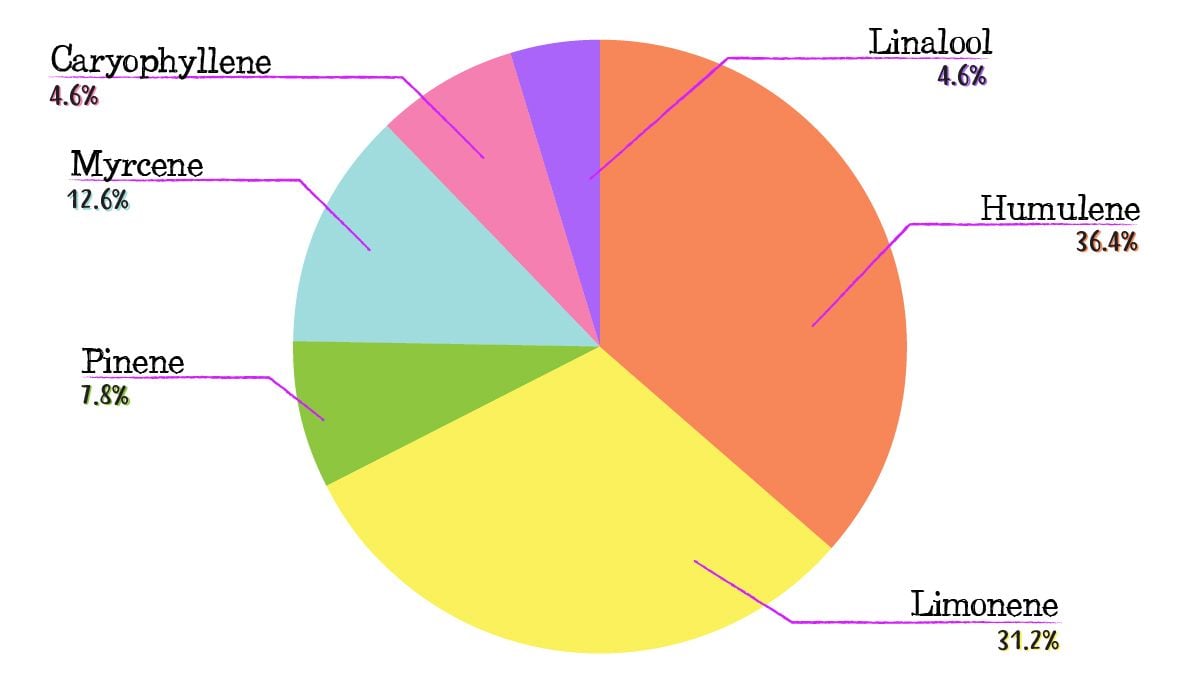
This delicious terpene mix produces a nice floral flavor with mint and lime hints and a strong sweet and sour background that will surely leave you wanting more.
6. Type of Effect
Due to the 28% THC, Dos Si Dos offers an intense cerebral high that starts as euphoric and energizing and will gradually turn into an even stronger mental and corporal high.
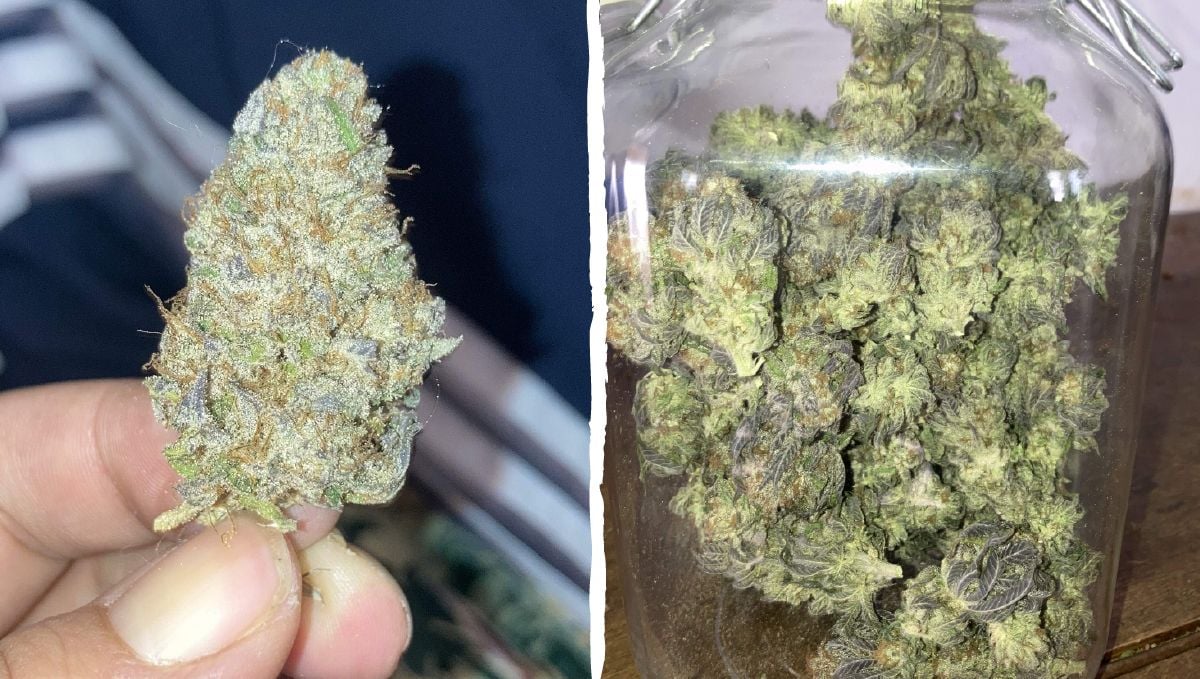
Thanks to the excellent genetics, you’ll experience the best of both worlds with this one so if you’re not an avid consumer be careful, it may be too strong!
7. In Conclusion
Dos Si Dos is a must for terpene lovers. This Indica-dominant hybrid will surely give you everything you’re looking for: great yields, delicious flavors, and beautiful flowers. So if you’re looking to grow a well-rounded strain, Dos Si Dos is just what you’re looking for! If you’ve grown Dos Si Dos before, feel free to share your tips and tricks with fellow growers by leaving a comment in the comment section below!









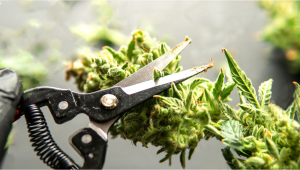
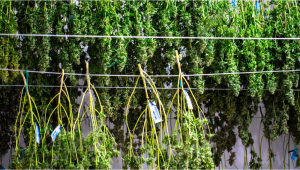

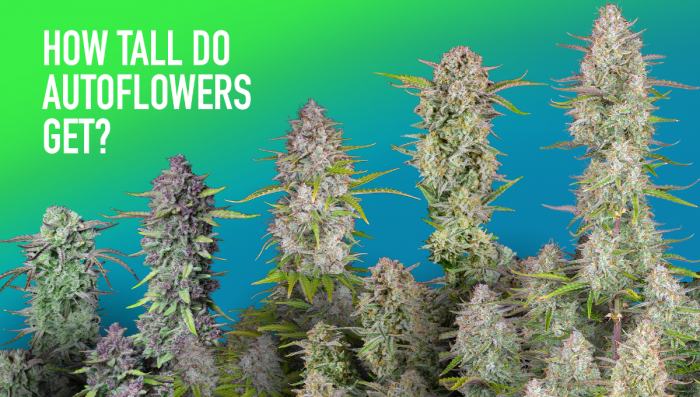

Comments